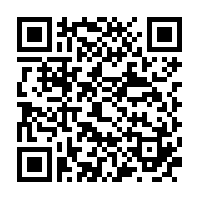The Right Questions
07 October 2017
بسم الله الرحمن الرحيم
حُسْنُ السُّؤَالِ نِصْفُ الْعِلْم
'Half of learning is asking good questions.'
(Amirul Mumineen SA)
This article was written by Ra'sul Hududil Mayameen Janab Syedi Aziz Bhaisaheb Qutbuddin in 2017.
Knowledge (‘ilm) is the foundation of Dawat and the cornerstone of our belief system. As Rasulullah’s SA Hadith asserts, seeking knowledge is a compulsory obligation (farizat) on every Muslim man and woman.
To seek the ‘ilm of Aal-e-Mohammed, one must dedicate time effort and ascend the levels of knowledge, especially ensuring strong foundations in the very basics. An essential part of seeking knowledge is asking questions. The more immersed one is in knowledge, the more questions arise. As Amirul Mumineen SA expressed, asking the right question is major part (half) of attaining knowledge. Inquiry is vital to learning.
Our Hudaat Kiraam have encouraged asking questions because they have the confidence of having the right answers. But earnest questions are required to receive earnest answers – the one who questions needs to want to understand and seek knowledge (istirshaad) and should not be asking to object and protest (iraad). The first type is encouraged, the latter is obviously not. The first type becomes a reason for learning and the latter for becoming even more distant from the truth.
A good question has often been the reason for the flow of knowledge. Many Du’aat, for example Syedna Hatim bin Ibrahim RA, have composed an entire Risalat (Tuhfatul Qulub) in response to questions from learned students.
The answer given is often at different levels. For example, the answer to a child asking how an airplane can fly will be very different from the answer given to a university physics student. To appreciate the intricacies and details of the answer one requires a foundation in the subject. Such is the case in Dawat ‘ilm as well. There are answers at many different levels of knowledge and one must ultimately make the effort and take out the time to learn the basics and foundation to attain full answers.
In Rasulullah’s time, if there was any question regarding the Qur’an Majeed, our philosophy or Shari’at, those who followed Rasulullah asked him. Our Hudaat Kiraam argue that it is unjust if Allah Ta’ala leaves those in the following ages without a recourse to whom they can address that question. The Qur’an Majeed asserts, “if you do not know then ask ahluz-zikr (the people of the book – Surat al-Nahl: 43)”. The people of the book are the progeny of Rasulullah, our A’immat Tahereen and their Du’aat in their seclusion (Syedna al-Mu’ayyad also argues that Allah Ta’ala has also addressed Rasullulah in the Qur’an as “zikr” and therefore ‘ahluz-zkir’ are the progeny of Rasulullah).
Today, the na’ib (vicegerent) of Imam-uz-zaman SA and the successor of the Du’aat, Syedna Taher Fakhruddin TUS encourages questions of istirshaad from Mumineen regarding matters of doctrine (aqeeda), jurisprudence (shari’at – fiqh), philosophy and all other aspects in all languages. In Ashara Mubaraka, Syedna graciously said that he would personally answer questions addressed to him on a regular basis and video recordings of the answers would be made available for the benefit of all Mumineen.
We offer shukur and thanks to Allah Ta’ala and his Dai for this great opportunity. May Allah Ta’ala grant Mumineen the tawfeeq to ask the “right questions”.
Mumineen may send their questions to info@fatemidawat.com. The questions will be arazed in Hazrat Imamiyyah and Syedna TUS will address the questions in a weekly video that will begin shortly.



